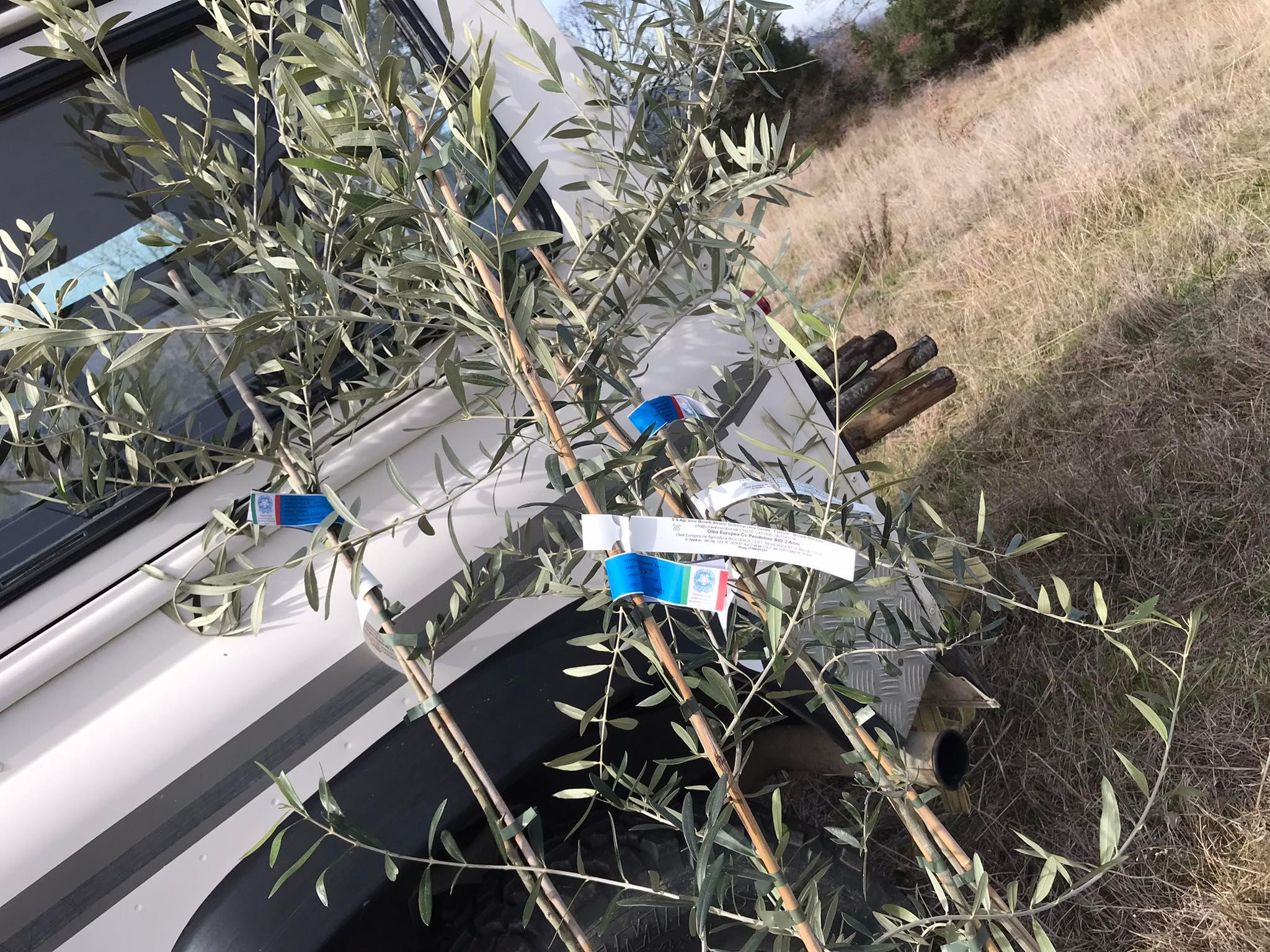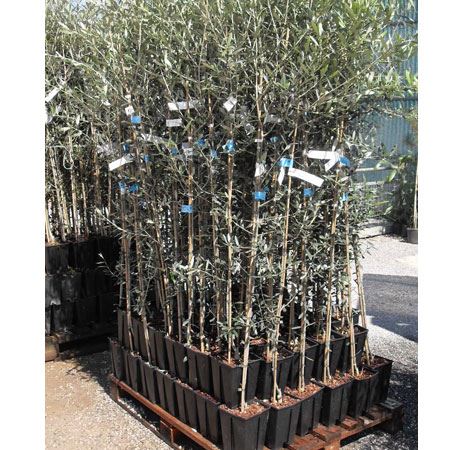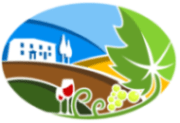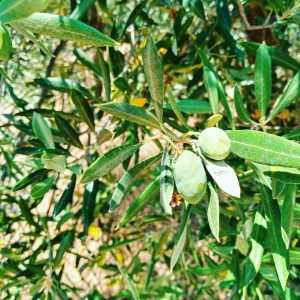
Adopt an Olive Tree in Tuscany, A Journey of Connection, Culture, and Sustainability
 Tuscany, the picturesque region in central Italy, is known for its breathtaking landscapes, rich history, and world-renowned cuisine. Among its many treasures, the olive tree stands as an enduring symbol of the region’s cultural and agricultural heritage. In recent years, a unique and sustainable initiative has gained popularity in Tuscany and beyond: to adopt an olive tree.
Tuscany, the picturesque region in central Italy, is known for its breathtaking landscapes, rich history, and world-renowned cuisine. Among its many treasures, the olive tree stands as an enduring symbol of the region’s cultural and agricultural heritage. In recent years, a unique and sustainable initiative has gained popularity in Tuscany and beyond: to adopt an olive tree.
Adopt an olive tree allows individuals from around the world to connect with this ancient tradition, experience the beauty of Tuscany, and actively contribute to sustainable agriculture. In this essay, we will embark on a comprehensive exploration of the process, benefits, and cultural significance of adopting an olive tree in Tuscany. Our journey will take us through the history of olive cultivation, the modern adoption process, the role of olive trees in Tuscany’s culture, and the broader context of sustainable farming.
The Olive Tree in Tuscany’s History
The olive tree (Olea europaea) has deep roots in Tuscany’s history, dating back thousands of years. Its cultivation can be traced to ancient civilizations that inhabited the region, including the Etruscans and Romans. Over the centuries, olive groves have played a vital role in shaping the landscape, economy, and culture of Tuscany.
The Etruscans and Olive Cultivation
The Etruscans, one of the earliest civilizations in Tuscany, were among the first to recognize the value of olive cultivation. They understood the significance of olive oil as both a source of nutrition and a commodity for trade. Etruscan tombs and artifacts reveal the importance of olive trees in their society, with olive branches often depicted in art and burial rituals.
The Romans and Expansion of Olive Farming
The Romans, who succeeded the Etruscans, further expanded olive farming in Tuscany. They introduced advanced agricultural techniques, such as terracing and irrigation systems, which transformed the landscape into a patchwork of olive groves. Olive oil, called “liquid gold” by the Romans, became a cornerstone of their cuisine, economy, and culture.
The Medieval and Renaissance Periods
During the Middle Ages and the Renaissance, olive cultivation continued to thrive in Tuscany. Monasteries played a crucial role in preserving and improving olive farming techniques, and olive oil remained an essential ingredient in both peasant and aristocratic diets. Olive oil presses, many of which still exist today as historic landmarks, were central to local communities.
Adopting an Olive Tree in Modern Tuscany
The Birth of the Olive Adoption Initiative
In recent years, Tuscany has witnessed a resurgence of interest in its agricultural heritage, including the olive tree. The concept of adopt an olive tree emerged as a way for people from around the world to connect with this tradition and actively participate in sustainable farming practices.
How Does Olive Tree Adoption Work?
Adopting an olive tree in Tuscany involves a straightforward yet meaningful process.
Tenuta Le Mandorlaie offer the opportunity to adopt an olive tree in Tuscany, we work hard to create and look after our farms eco systems and act sustainably, we plant new olive trees that have been adopted in November when the weather cools.
The Adoption Package, Adoption packages vary depending on the program, but they include benefits such as a certificate of adoption, olive oil produced from the our ally farmed olive groves, and the opportunity to visit the grove and stay with us at Tenuta Le Mandorlaie.
Sustainable Practices in Olive Cultivation
One of the key aspects that make olive tree adoption (Adopt an Olive Tree) appealing is its commitment to sustainable agriculture. Many adopted groves adhere to farming principles, minimizing the use of chemicals and prioritizing ecological balance. Adopters have the satisfaction of knowing they are contributing to the preservation of both local traditions and the environment.
Cultural Significance of the Olive Tree in Tuscany
The olive tree holds a prominent place in Tuscany’s culture, symbolizing various aspects of life, from peace and fertility to abundance and endurance. Understanding this cultural significance adds depth to the experience of adopting an olive tree in Tuscany.
Olive Oil in Tuscan Cuisine
Olive oil is at the heart of Tuscan cuisine. It is used not only for cooking but also as a finishing touch on dishes like bruschetta, salads, and grilled meats. The quality of Tuscan olive oil is renowned worldwide, and adopters get to savor the unique flavors and aromas of this liquid gold.
Olive Oil as a Symbol of Peace
The olive branch, a universal symbol of peace, has deep historical roots in Tuscany. It was used in ancient times as a token of goodwill and reconciliation. Adopting an olive tree can be seen as a symbolic gesture of fostering peace and goodwill, both locally and globally.
Olive Trees in Art and Literature
Throughout history, olive trees have inspired artists and writers. From Renaissance paintings to modern literature, the olive tree has been a recurring motif, representing beauty, resilience, and the passage of time. Adopters often find themselves inspired by the aesthetics and symbolism of their adopted tree.
Festivals and Traditions
Tuscany hosts numerous festivals and traditions centered around olive harvesting. These events provide adopters with a unique opportunity to immerse themselves in the local culture. Festivals often feature traditional music, dancing, and, of course, the chance to participate in the harvest.
The Broader Context of Sustainable Agriculture
Adopting an olive tree is not just about connecting with a cultural heritage; it is also about supporting sustainable agriculture practices. In this chapter, we delve into the broader context of sustainable farming and its importance in Tuscany and beyond.
Preservation of Biodiversity
Sustainable olive groves in Tuscany often prioritize the preservation of biodiversity. By avoiding harmful pesticides and herbicides, these groves create an environment where a variety of plant and animal species can thrive. This not only benefits the ecosystem but also contributes to the health of the olive trees themselves.
Soil Conservation
Sustainable agriculture practices, such as cover cropping and minimal tillage, help prevent soil erosion and degradation. These methods maintain the health and fertility of the soil, ensuring the long-term viability of olive cultivation in Tuscany.
Water Management
Olive groves in Tuscany are mindful of water conservation. Techniques like drip irrigation and rainwater harvesting help minimize water usage while ensuring that the olive trees receive the necessary hydration.
Community and Economic Sustainability
Sustainable agriculture in Tuscany often goes hand in hand with community well-being. Small-scale olive farmers and adopters alike contribute to the local economy, fostering a sense of community and helping to sustain rural livelihoods.
The Personal Experience of Adopting an Olive Tree
Connecting with Nature
Adopting an olive tree offers a unique opportunity to connect with nature on a personal level. Many adopters find solace and serenity in the groves, as they spend time with their tree and witness the changing seasons.
Learning the Art of Olive Harvesting
Participating in the olive harvest is a hands-on experience that allows adopters to learn about the labor-intensive process of gathering olives. This tradition, passed down through generations, offers a deeper appreciation for the hard work and skill required.
Sense of Ownership and Responsibility
Adopters develop a sense of ownership and responsibility towards their adopted tree. They eagerly anticipate each harvest season, knowing that the fruits of their tree will be turned into high-quality olive oil.
Building Connections
Adopting an olive tree fosters connections, not only with nature but also with the local community and fellow adopters. Many adopters forge lasting friendships with like-minded individuals who share a passion for sustainability and Tuscan culture.
The Future of Olive Tree Adoption
Olive tree adoption in Tuscany has a global impact by promoting sustainable agriculture, preserving cultural heritage, and fostering connections among people from diverse backgrounds. As the initiative continues to grow, its influence will extend far beyond the hills of Tuscany.
Expanding Sustainability
The success of olive tree adoption programs highlights the growing interest in sustainable agriculture. This trend may encourage other regions and crops to adopt similar initiatives, furthering the cause of sustainable farming worldwide. Olive tree adoption is a powerful tool for cultural exchange and understanding. It brings people from different parts of the world closer to Tuscany’s rich heritage and traditions, fostering a global community that values sustainability and cultural diversity.
Adopting an olive tree in Tuscany is much more than a symbolic gesture; it’s a journey that connects people to the region’s history, culture, and the timeless beauty of its landscapes. It’s an act of sustainability that contributes to the preservation of biodiversity, the health of the soil, and the livelihoods of local farmers. Most importantly, it’s a personal experience that leaves a lasting impression, forging connections between individuals, communities, and the Earth itself. As we reflect on the history, culture, and sustainable practices associated with olive tree adoption in Tuscany, we come to realize that this initiative is a beautiful tapestry of tradition, sustainability, and human connection.

